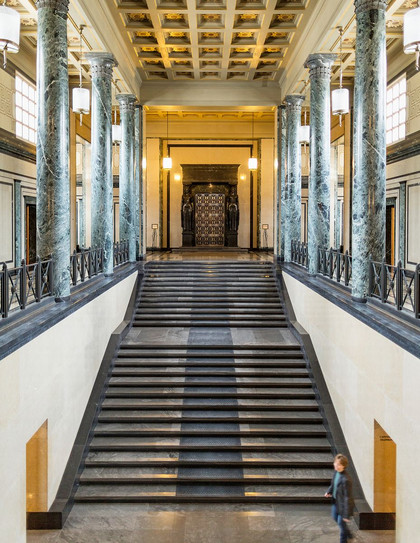However, this unwritten rule – a sort of gentlemen’s agreement – means that anyone who wants to sit on the bench must join a political party. Judges must pay an annual subscription fee to “their” party, of between 3,000 and 10,000 Swiss francs depending on the party (federal judges earn a salary of 365,000 francs). This idiosyncrasy has long been the subject of criticism abroad. The Group of States against Corruption (GRECO) – the Council of Europe’s anti-corruption body – believes the fee violates the principle of judicial independence. One of the arguments given by Switzerland to justify the tradition is that its political parties receive no public funding, unlike in other countries.
Unpopular judges voted out
Another GRECO criticism is that the federal judges have to be re-elected by parliament every six years. In its opinion, this procedure risks judges being voted out on political grounds. Indeed, punitive action against unpopular judges is not uncommon in Switzerland. In autumn 2020, the SVP recommended its own federal judge Yves Donzallaz for deselection because Donzallaz had contradicted the party line. In 2015, he had been involved in an FSC decision that saw the Swiss-EU Agreement on the free movement of persons take precedence over the “Stop mass immigration initiative” that the SVP had successfully put to the people. In the end, Donzallaz was comfortably re-elected by parliament – albeit without any votes from “his” party.
The “crucifix case” made headlines in the 1990s, when the FSC established the principle, specifically with regard to primary schools, that crucifixes were contrary to religious neutrality. Catholics thought this verdict was discriminatory. The federal judges involved were re-elected but received a relatively low number of votes as punishment.
Drawing lots
Businessman Adrian Gasser has long been one of the critics of this intertwining of politics and the judiciary. Gasser is the author of the Justice Initiative being put to voters on 28 November – a radical proposal that calls for federal judges to be appointed by drawing lots, and not through election by parliament. Judges would have greater independence by no longer being bound to any party. A specialist committee appointed by the Federal Council would only scrutinise the professional suitability of candidates. Through this change in the system, Gasser hopes to prevent the courts from “slowly but surely becoming party political instruments”. He says the method of drawing lots was common back in Ancient Greece as a means of counteracting bribery and influence.
The current system is far from perfect, but the “institutional immune system” has always helped to avert possible manipulation. To put forward the Donzallaz case as a recent example.
FDP member of the Council of States Andrea Caroni (canton of Aargau)
Chairman of the parliamentary judicial committee
Policymakers are sceptical of Gasser’s proposal. Both the Federal Council and parliament are unanimous in recommending that the popular initiative be rejected, full stop. Leaving the appointment of judges to chance would weaken the democratic legitimacy of the courts and erode public confidence in the decisions they make, argue opponents. The current system is far from perfect, admits the chairman of the parliamentary judicial committee, FDP member of the Council of States Andrea Caroni (canton of Aargau). But the “institutional immune system”, as he calls it, has always helped to avert possible manipulation. Caroni puts forward the Donzallaz case as a recent example.
Those at the centre of the debate – the judges – also reject the idea of drawing lots, although the Swiss Judges’ Association (SJA) believes that the situation could nevertheless be improved. For example, by being elected just once, judges could be spared the party political pressure associated with re-election. This already happens in the canton of Fribourg, where judges and prosecutors are elected for an indefinite period but can still be dismissed on serious grounds. Abolishing party subscription fees would also “boost judicial independence”, says the SJA. However, the Federal Council and parliament refuse to consider any form of counterproposal. Voters will now have the last word.
www.justiz-initiative.ch
Overview of all the votes on 28 November
“Strong healthcare” Initiative
According to this popular initiative, Switzerland should train more nurses and provide them with better working conditions (see the focus article for more details).
Justice Initiative
According to the authors of this popular initiative, federal judges should be appointed by drawing lots. This would safeguard the Federal Supreme Court’s independence, they say.
Covid-19 Act
The “Friends of the Constitution” are contesting the government’s Covid measures again. This, their second referendum, is directed against the Covid certificate for people who have been fully vaccinated against Covid-19, have recovered from Covid-19 or have tested negative for Covid-19.
(TP)





![[Translate to en:]](/fileadmin/_processed_/d/2/csm_Revue_202204_Huehnerfarm_SH-Reportage_3074_7901ca94df.jpg)





Comments